Are you feeling frustrated with your university experience and considering making a formal complaint? Writing a well-structured letter can help you communicate your concerns effectively and ensure they are taken seriously. In this article, we will guide you through the essential elements of a formal complaint letter to university administration, ensuring your voice is heard. Ready to take the next step and advocate for yourself? Let's dive deeper into the specifics!

Clear subject line
A formal complaint to university administration often begins with a clearly defined subject line that reflects the nature of the issue. For example, a suitable subject line could be "Formal Complaint Regarding Academic Misconduct in Course XYZ101." This subject line specifies the type of complaint, the context (academic), and identifies the relevant course. It ensures that the administration understands the urgency and seriousness of the matter at a glance, allowing for prompt attention to the issue. The clarity of the subject line sets the tone for the detailed account that will follow in the body of the complaint.
Specific details of the complaint
Students often face delays in receiving their grades from courses, particularly at academic institutions like City University. For instance, the Chemistry department has consistently taken over six weeks to process final grades. This prolonged period causes anxiety and confusion for students awaiting critical academic feedback impacting future coursework and scholarships. Additionally, the lack of communication regarding these delays exacerbates the issue, leaving students in the dark. Moreover, the university's grading policy states a maximum of four weeks for grade submissions, making these extended timelines concerning and in violation of established protocols. Such inefficiencies can undermine student confidence in the academic administration's commitment to timely education.
Relevant documentation or evidence
Inadequate response times from university administration can lead to student frustration during crucial semester periods, especially regarding academic concerns. For instance, formal complaints regarding grades, online coursework issues, or campus safety incidents often require prompt attention. Key documentation includes emails sent to the administration outlining specific grievances, timestamps indicating submission dates, and any relevant incident reports filed with campus safety services. Supporting evidence may consist of screenshots of online forum discussions documenting peer experiences, photographs of physical campus spaces, or policies outlined in university handbooks that highlight expected response timelines. Additionally, records of meetings or conversations with faculty members about these issues can further substantiate the complaint. These detailed elements ensure that the university administration comprehends the urgency and context of the concerns raised by students.
Suggested resolution or action
The university administration must address the issue of inadequate support services for mental health, particularly for students facing significant stress during exam periods, such as finals week in April. Reports indicate that counseling appointments often exceed wait times of two weeks, leaving students with urgent needs struggling without timely help. A proposed resolution involves increasing funding to the counseling center, which would allow the hiring of additional licensed mental health professionals to reduce wait times to less than 72 hours. Enhancing outreach programs on mental health awareness can also empower students to seek support proactively. Establishing a dedicated hotline for immediate assistance during peak stress times will ensure that help is available when it is most needed. Steps taken towards these improvements can create a healthier campus environment and support student well-being effectively.
Contact information for follow-up
The university administration has received numerous formal complaints regarding the lack of adequate student support services at institutions like XYZ University. Many students have reported feeling overwhelmed due to insufficient academic advising and mental health resources. The administration office, located in Building A, Suite 200, typically operates from 9 AM to 5 PM, Monday through Friday, providing a point of contact for students seeking to address their concerns. Contact information, including the direct phone line (555-0123) and email address (admin@xyzuniversity.edu), are crucial for facilitating follow-ups and ensuring that voices are heard in response to ongoing issues. The university seeks to foster a supportive learning environment, addressing these complaints promptly to enhance student welfare and academic success.
Letter Template For Formal Complaint To University Administration Samples
Letter template of dispute resolution request to university administration.
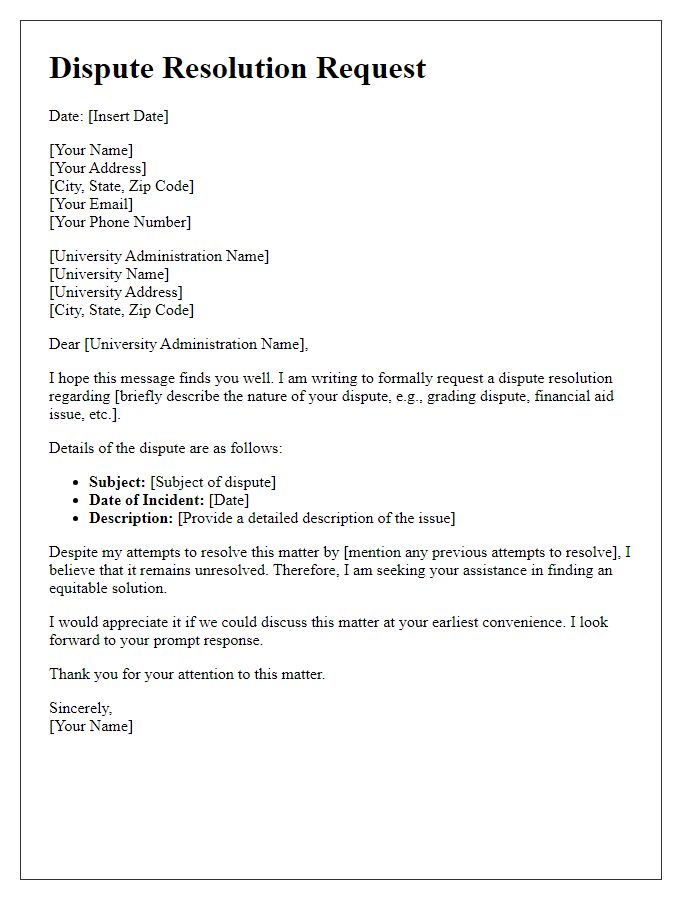
Letter template of dissatisfaction with academic policies to university authorities.
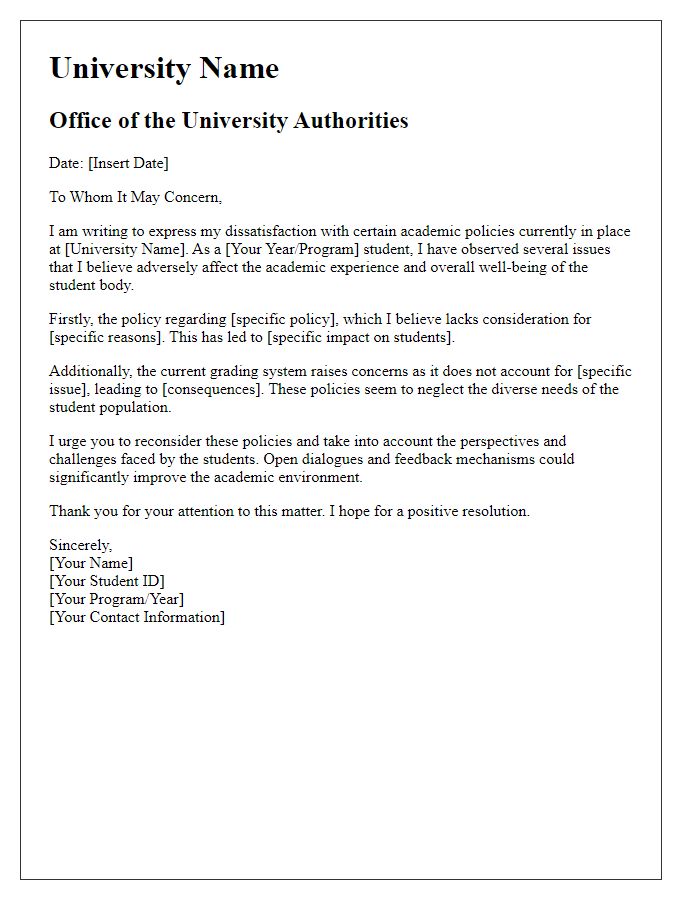
Letter template of complaint about campus facilities to university management.
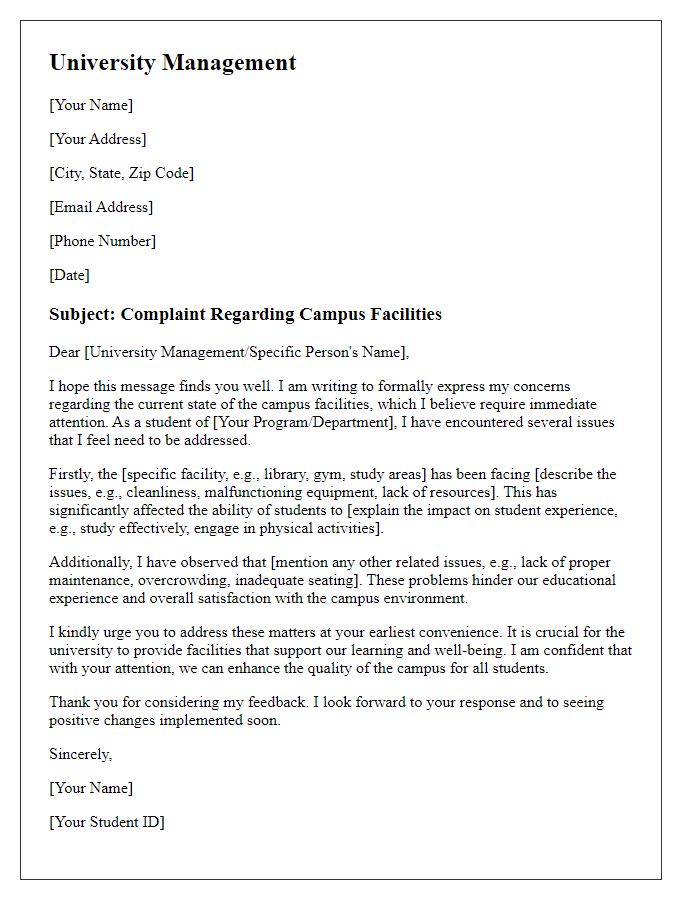
Letter template of appeal against unfair treatment within the university.
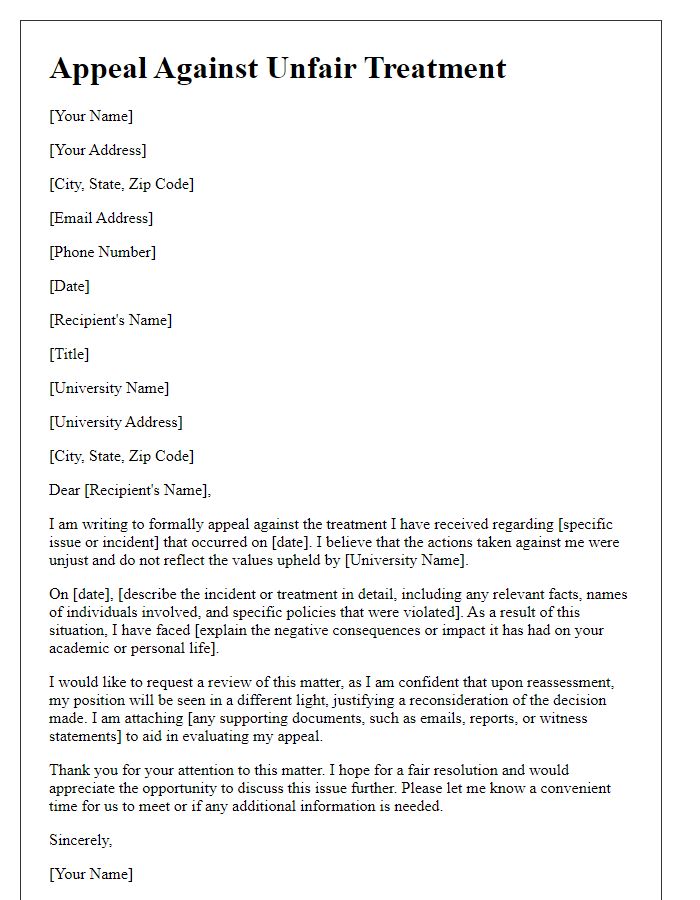
Letter template of concern over academic integrity to university administration.
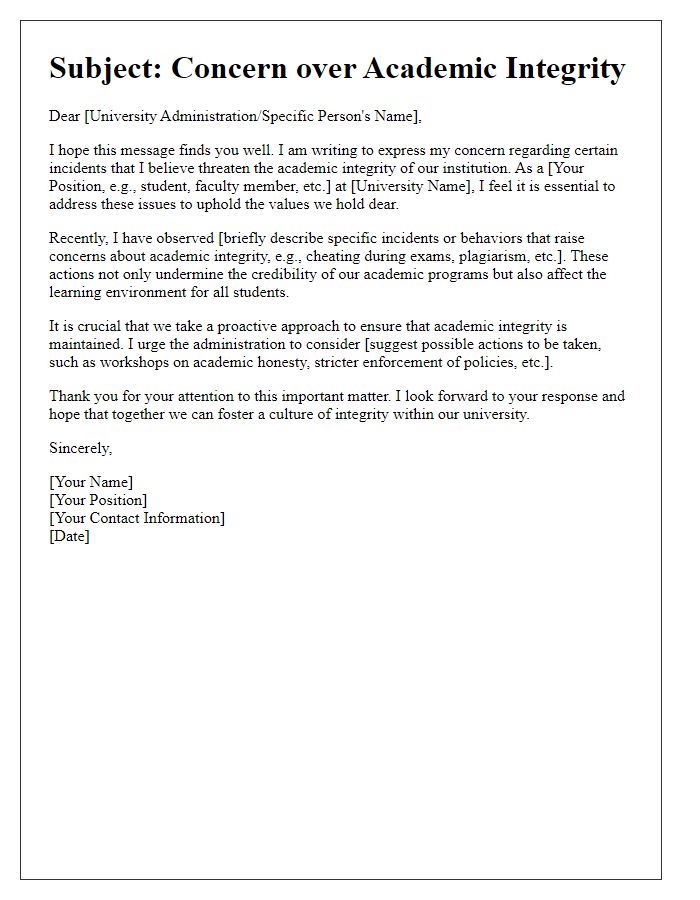
Letter template of protest against university policies affecting students.
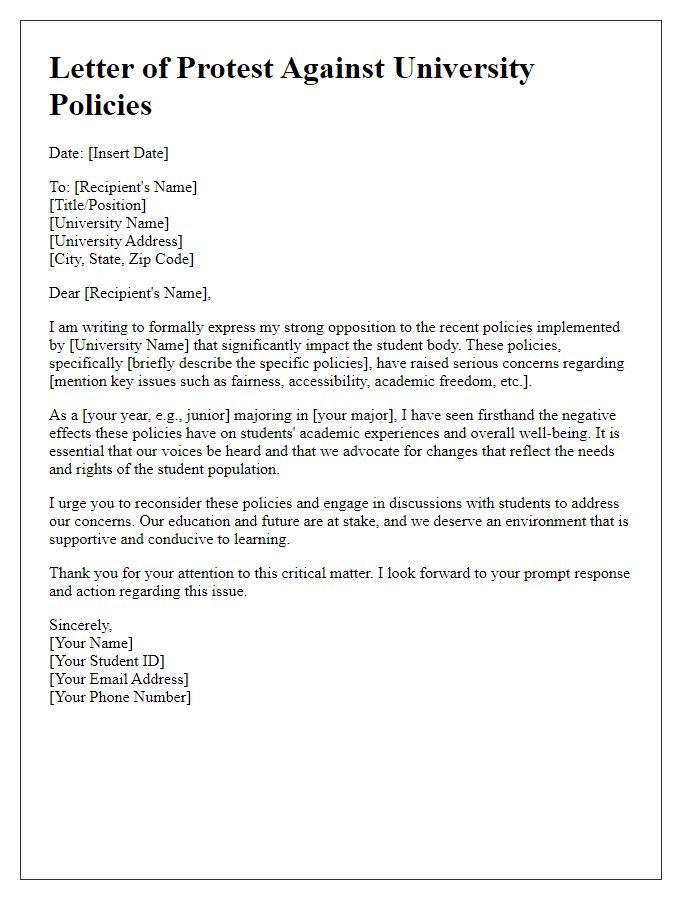

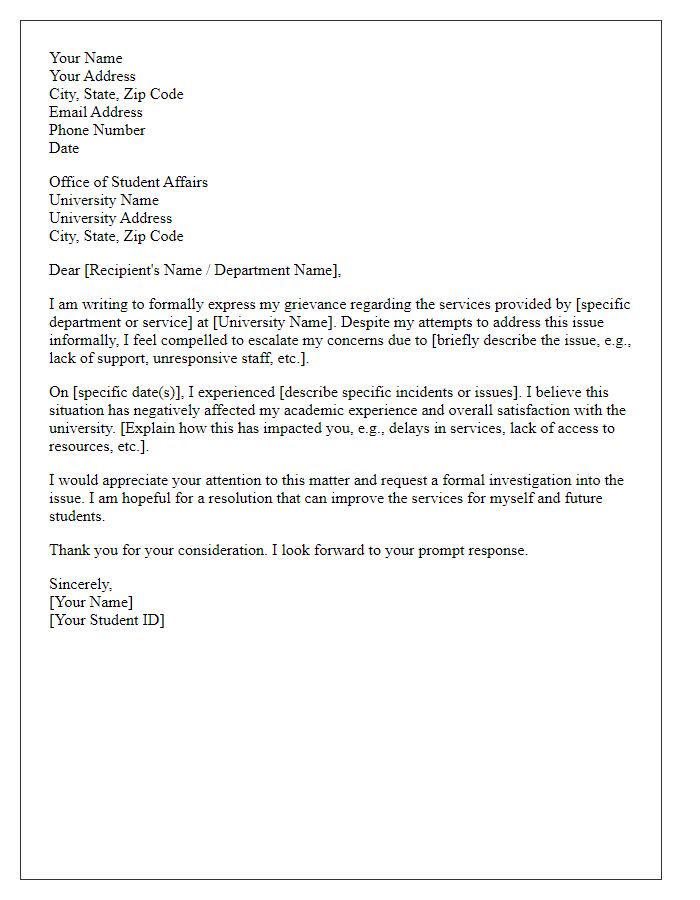
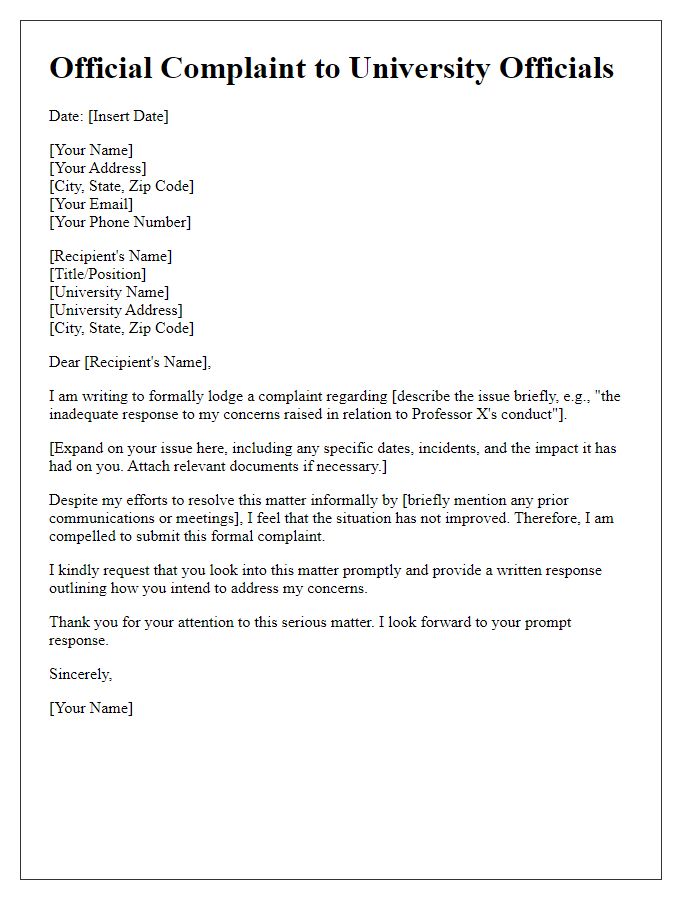
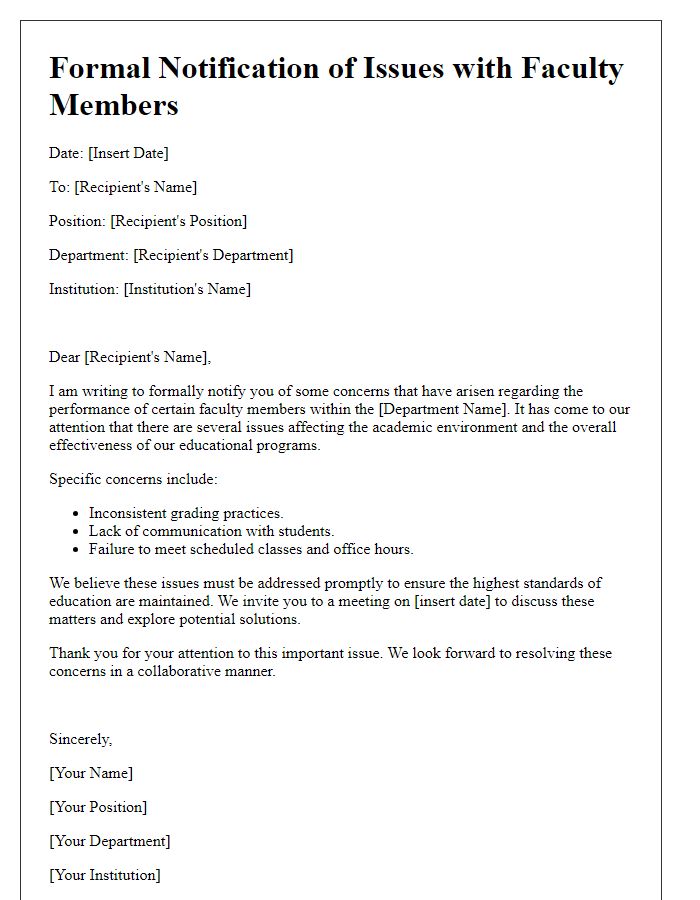
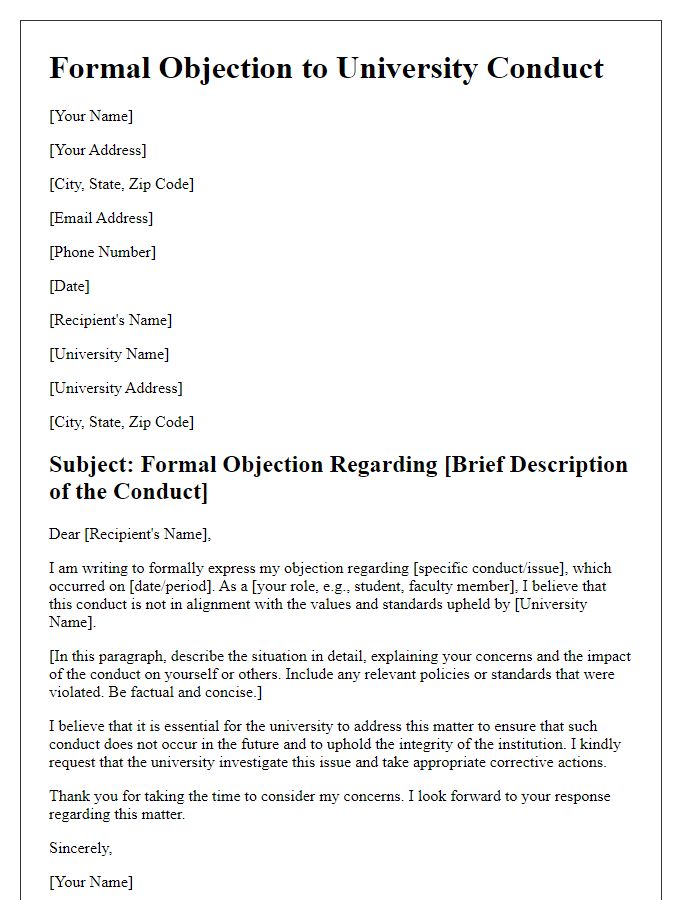


Comments